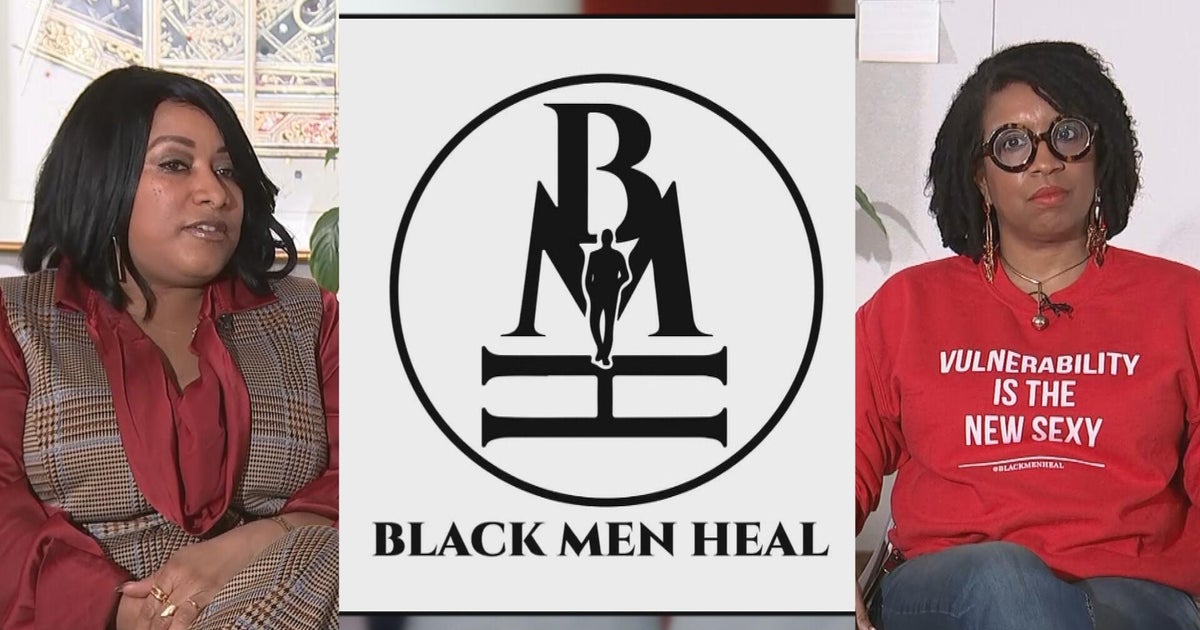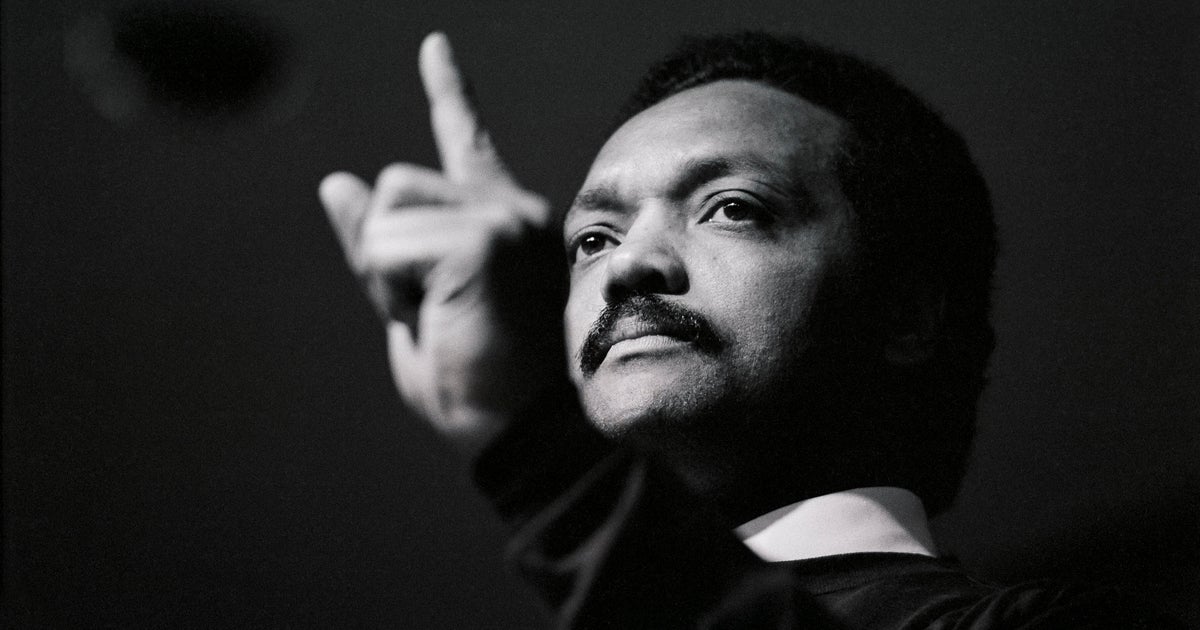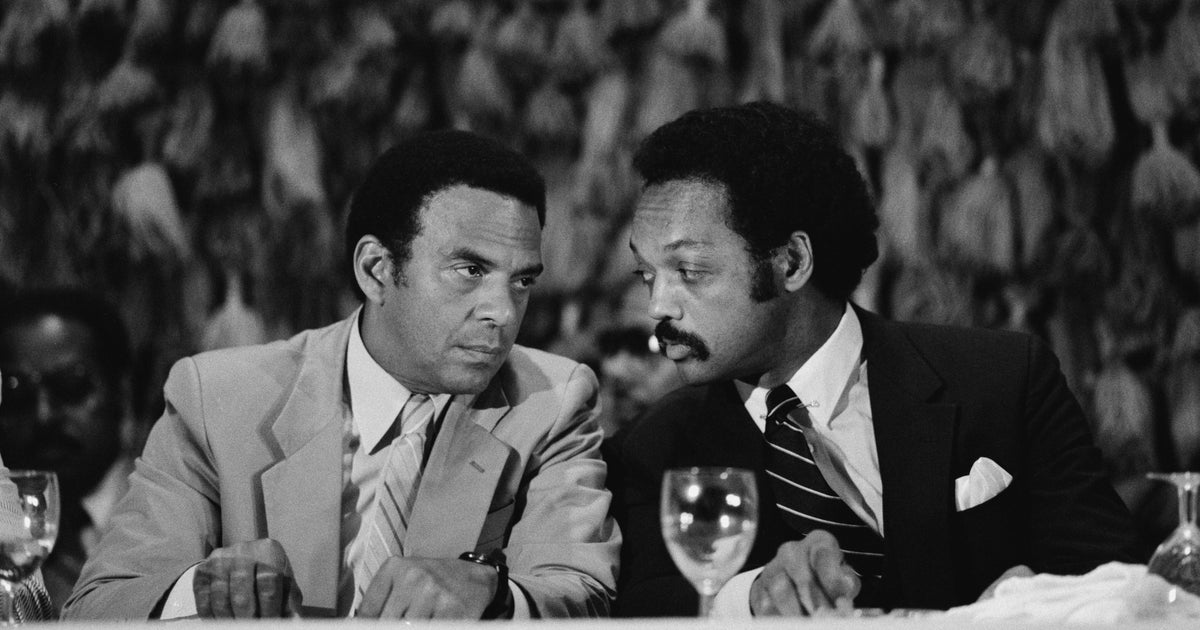Movie Review: '42'
By Bill Wine
KYW Newsradio 1060
PHILADELPHIA (CBS) — As the song almost says, "Here's to you, Mr. Robinson..."
This film about the history-making Brooklyn Dodgers' signing of the legendary Jackie Robinson -– the man Dr. Martin Luther King described as a "freedom rider before freedom riders" –- examines the way Major League Baseball's color barrier was finally broken.
That's the point of departure for 42, a movie named for the number he wore on his back that chronicles the dramatic changing of not only a game but a nation.
Note that this is the second Jackie Robinson movie: Robinson himself starred in The Jackie Robinson Story, in 1950.
In his first lead role, Chadwick Boseman portrays Robinson, a Negro League player who is signed in 1947 as the first African-American major league player by Dodgers' owner and general manager Branch Rickey (played by Harrison Ford) against the objections of just about everybody.
Why Robinson? Because Rickey, claiming that the only color he cared about was green, was intrigued by the fact that Robinson had been courtmartialed during World War II for refusing to sit in the back of a military bus. Rickey knew that, if this was to work, he would need to choose someone consummately talented who could take the inevitable racist abuse and not fight back.
It had to be someone with guts and restraint, and Robinson seemed to have both. Turns out Rickey was right.
Among the familiar names brought to life by the well chosen supporting cast are Dodgers' manager Leo Durocher (Christoper Meloni), Dodgers' shortstop Pee Wee Reese (Lucas Black), baseball announcer Red Barber (John C. McGinley), Dodgers' pitcher Ralph Branca (Hamish Linklater), and Rachel Robinson, Jackie's wife (Nicole Beharie).
Relative newcomer Boseman makes quite an impression, literally and figuratively, and avoids the temptation to play Robinson as a saintly icon headed for statue status rather than a flesh-and-blood human being.
And Ford's performance as the gruff executive, which seems overly mannered and verging on caricature at the outset, grows on you, even though much of his dialogue is proverbial rather than conversational.
Writer-director Brian Helgeland (Payback, A Knight's Tale, The Order), who won an Oscar for best adapted screenplay in 1997 for LA Confidential and was nominated for his adapted screenplay for 2003's Mystic River, uses baseball as a metaphor for the United States in his screenplay, which is not as complex or nuanced as it might have been, but is not simplistic either.
You get the feeling that the makers have strived to stay close to the documented facts, both on the field and off.
And while the direction is occasionally heavyhanded, the film achieves a smooth balance between the man and the game he played as it takes us back to a different era with skill and grace, delivering both a baseball flick that captures the appeal of the sport and a chronicle of American racism.
There are plenty of "uncomfortable" scenes, as there should be and as you would expect, but perhaps the most disturbingly memorable finds Phillies' manager Ben Chapman, played by Alan Tudyk, taunting Robinson from in front of the Phillies' dugout in Ebbets Field.
It's only one among many scenes displaying intolerable cruelty and the grace Robinson displayed and the composure he maintained in the face of unspeakably shameful bigotry, but it has the painful ring of truth.
Helgeland adopts the tantalizing slowness of baseball for his editing rhythm, and showcases the mythology of the sport with numerous slow-motion flourishes à la The Natural.
But ultimately this is a portrait in courage, one that deserves both its cheers and its tears, and makes up in sincerity and inspiration what it lacks in grittiness.
It's also a vivid reminder of just why all Major League Baseball players wear Robinson's now-retired number on the anniversary of his debut.
So we'll flash the steal sign at 3 stars out of 4 for this earnest and stirring Jackie Robinson biopic, 42. For this movie that matters, a grand slam would have been great, but we'll certainly take this double into the gap.







